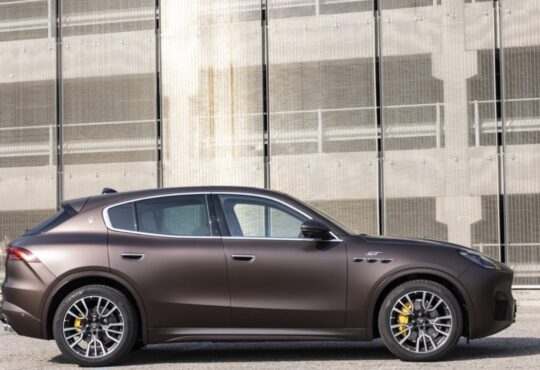
— This is the script of CNBC’s news report on EU Petrol and Diesel Car Ban for China’s CCTV on March 31, 2023.
This week, the EU’s ban on fossil fuel cars was formally approved by the European Parliament. But the entire process, from proposal, discussion, voting, facing opposition, and subsequent revisions, can be described as full of twists and turns.
The ban on petrol and diesel cars refers to the EU’s decision to prohibit the sale of carbon dioxide-emitting vehicles from 2035 onwards. And the reason why the EU set the ban from 2035 is that the average lifespan of a new car is usually 15 years, and this timing can help the EU achieve a larger goal of achieving net-zero emissions by 2050, with transportation accounting for about a quarter of the EU’s emissions
In order to accelerate the achievement of environmental goals, the EU hoped to implement the ban on fuel-powered cars. The earliest proposal for the ban was made in 2021, and the European Parliament, the European Commission, and EU member states were engaged in discussions on this groundbreaking band throughout 2022.
It was originally scheduled for a vote in early March this year. However, Germany raised opposition at the last moment. Because the automotive industry is crucial to Germany as it contributes significantly to its economy.
According to data from the German Association of the Automotive Industry (VDA), the total sales volume of the automotive industry exceeded 410 billion euros in 2021. In 2020, the industry employed over 800,000 workers, and the number in 2021 was approximately 786,100.
Since electric vehicles require fewer components and less labor compared to internal combustion engine vehicles, a complete ban on the sale of internal combustion engine vehicles would result in a significant number of job losses in the automotive industry. According to a survey by German broadcaster ARD in March this year, 67% of Germans opposed this ban.
Not only did Germany oppose the ban, but it also formed an alliance with several European countries. The Czech Republic, Slovakia, Italy, Poland, Romania, and Hungary joined Germany’s camp and proposed some modifications to the ban.
Germany suggested that there should be an exemption for internal combustion engine vehicles using e-fuels or carbon-neutral fuels. E-fuels are made from hydrogen and carbon dioxide and are considered to be close to carbon neutrality in terms of raw materials, production, and emissions. They are also considered the most realistic carbon-neutral solution for the automotive industry.
Not only the government, but representative car manufacturers also challenged the ban, such as Porsche, the luxury brand under the Volkswagen Group, and Ferrari from Italy. . For these car makers, e-fuels have a higher power density compared to the lithium-ion batteries in electric vehicles. This means that these car manufacturers can continue producing their classic lightweight sports cars.
Porsche has been investing in e-fuels for quite some time. Last year, it invested $75 million in an innovative fuel startup called HIF, which has a pilot plant in Chile producing e-fuels. This company claims that e-fuels can function like gasoline while making Porsche’s classic models more environmentally friendly.
Although Porsche and Ferrari account for a small portion of the overall automotive industry, they hold a significant symbolic status as national icons, thereby obstructing the EU’s final decision.
Under all these pressures, the EU made a compromise at last, allowing the sale of internal combustion engine vehicles using e-fuels after 2035. However, this decision has incurred criticism from environmental organizations and some European officials.
Environmentalists argue that e-fuels are as harmful as fossil fuels, as they emit toxic nitrogen oxides in similar quantities to gasoline engines. The Spanish energy minister also stated that Germany’s approach is unfair since e-fuels are excessively expensive and cannot be widely used.
Nevertheless, the “long-delayed” ban has finally been approved. And the European Commission will also discuss the details of exemptions for automobiles this Autumn, and we will see how it goes.






